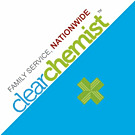Risks of alcohol misuse
Short term
The short-term risks of alcohol misuse include:
* accidents and injuries requiring hospital treatment, such as a head injury
* violent behaviour and being a victim of violence
* unprotected sex that could potentially lead to unplanned pregnancy or sexually - transmitted infections (STIs)
* loss of personal possessions, such as wallets, keys or mobile phones
* alcohol poisoning – this may lead to vomiting, fits (seizures) and falling unconscious
* People who binge drink (drink heavily over a short period of time) are more likely * to behave recklessly and are at greater risk of being in an accident.
Long term
Persistent alcohol misuse increases your risk of serious health conditions, including:
- heart disease
- stroke
- liver disease
- liver cancer
- bowel cancer
- mouth cancer
- breast cancer
- pancreatitis
As well as causing serious health problems, long-term alcohol misuse can lead to social problems for some people, such as unemployment, divorce, domestic abuse and homelessness.
If someone loses control over their drinking and has an excessive desire to drink, it's known as dependent drinking (alcoholism).
Dependent drinking usually affects a person's quality of life and relationships, but they may not always find it easy to see or accept this.
Severely dependent drinkers are often able to tolerate very high levels of alcohol in amounts that would dangerously affect or even kill some people.
A dependent drinker usually experiences physical and psychological withdrawal symptoms if they suddenly cut down or stop drinking, including:
* hand tremors – "the shakes"
* sweating
* seeing things that are not real (visual hallucinations)
* depression
* anxiety
* difficulty sleeping (insomnia)
This often leads to "relief drinking" to avoid withdrawal symptoms.
Am I drinking too much alcohol?
You could be misusing alcohol if:
* you feel you should cut down on your drinking
* other people have been criticising your drinking
* you feel guilty or bad about your drinking
* you need a drink first thing in the morning to steady your nerves or get rid of a hangover
Someone you know may be misusing alcohol if:
* they regularly drink more than 14 units of alcohol a week
* they're sometimes unable to remember what happened the night before because of their drinking
* they fail to do what was expected of them as a result of their drinking (for example, missing an appointment or work because they're drunk or hungover)
Treating alcohol misuse
How alcohol misuse is treated depends on how much alcohol a person is drinking.
Treatment options include:
*counselling – including self-help groups and talking therapies, such as cognitive behavioural therapy (CBT)
* medicines
* detoxification – this involves a nurse or doctor supporting you to safely stop drinking; this can be done by helping you slowly cut down over time or by giving you medicines to prevent withdrawal symptoms
There are 2 main types of medicines to help people stop drinking.
The first is to help stop withdrawal symptoms and is given in reducing doses over a short period of time. The most common of these medicines is chlordiazapoxide (Librium).
The second is a medicine to reduce any urge you may have to drink. The most common medicines used for this are acamprosate and naltrexone.
These are both given at a fixed dose, and you'll usually be on them for 6 to 12 months.
For more infromation please contact 0151-203-6535 or email pharmacy@clearchemist.co.uk.













